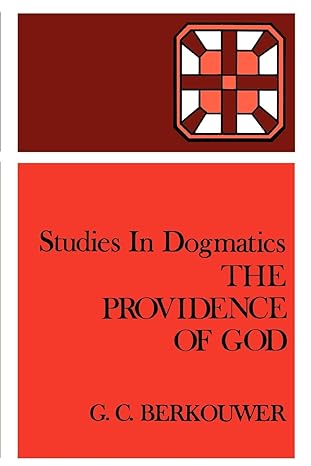A Brief Book Summary from Books At a Glance
by Steve West
Table of Contents
1 The Crisis of the Providence Doctrine in Our Century
2 The Knowledge of Providence
3 Providence as Sustenance
4 Providence as Government
5 A Third Aspect?
6 Providence and History
7 Providence and Miracles
8 The Problem of Theodicy
Summary
Chapter 1: The Crisis of the Providence Doctrine in Our Century
There is a vast distance between the historic, Christian view of God’s providence and the view that is commonly found today. Many moderns believe that after the World Wars, life without God can only be seen as existentially meaningless. A turn has occurred from optimism to pessimism, and nihilism and atheism seem to be the logical conclusion of our time for many people. Can the church—in light of the Holocaust and other tragedies—still affirm that God is in sovereign control of all things? In church history, God’s providential control has been assumed by virtually everyone, but today how do we relate the comfort of this doctrine with the dread that engulfs our times? Given existential angst and darkness, the doctrine of Providence has become a stumbling block for many. Scripture, however, teaches that the real source of dread is our estrangement from God because of our sin.
In the Psalms and in the Book of Job, we see believers wrestling with the crisis of the wicked prospering, the righteous suffering, and God’s providence ruling over all things. Scripture does not hide from the facts and crises of life, but rather engages them. All through history, saints have struggled with questions of Why? How long? and Where is God? Everything hinges on how we answer these questions in relation to the control of God. Some have abandoned belief in God because of their view of naturalistic cause-and-effect relationships. Others have seen God and providence as being nothing more than a human psychological projection, conjured up to give us comfort. Given the crises of our time, trust in God’s mysterious ways seems untenable to many. While some are moving to atheism, others have moved to the occult, paranormal phenomena, and parapsychology. The concepts of God in Deism, liberal theology, and amongst philosophers have been far removed from the biblical presentation of God’s nature and actions. God’s providence is not merely genial and smiling, and when people were told that it was, the shock of world events dislodged that watered-down belief. Attempts to humanize God will fail: the church must steadfastly proclaim the biblical truth of God’s full providence. . . .
[To continue reading this summary, please see below....]The remainder of this article is premium content. Become a member to continue reading.
Already have an account? Sign In
Buy the books

THE PROVIDENCE OF GOD: STUDIES IN DOGMATICS, by G. C. Berkouwer